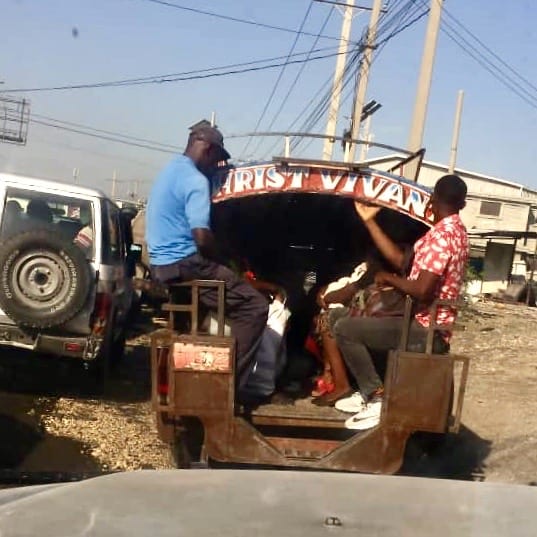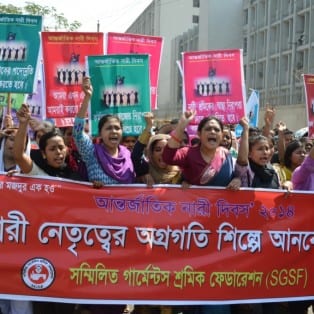Just as the magnitude of the COVID-19 pandemic highlights the massive global economic and social inequality around the world, with workers in the informal economy and supply chains, and migrant workers—many of whom are women—especially marginalized, so, too, does it...
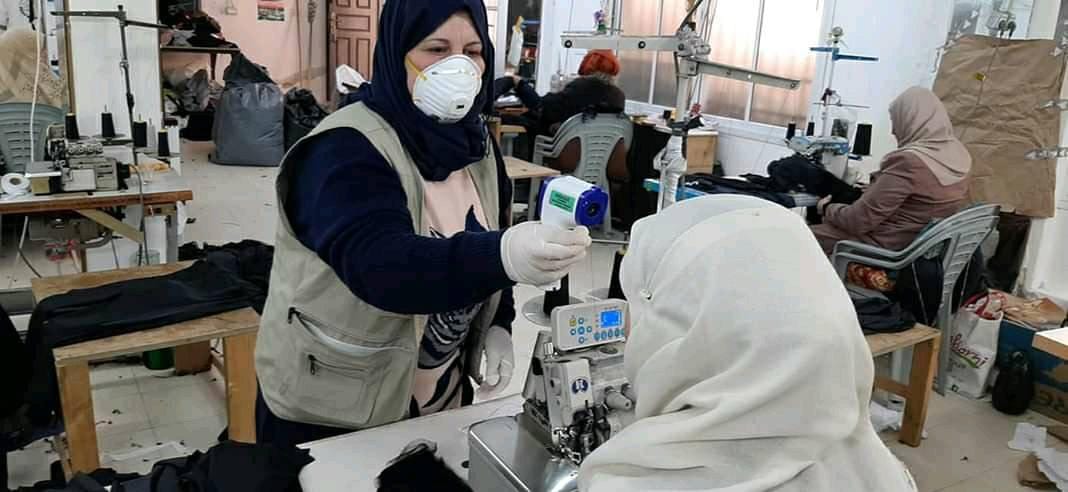
During the COVID-19 pandemic, members of the Palestinian General Federation of Trade Unions, a Solidarity Center partner, tested workers for fever. Credit: PGFTU
Each year, more than 2 million workers die on the job—more than 6,000 a day worldwide. Hundreds of millions more workers a year suffer from non-fatal job-related accidents and illnesses.
The global coronavirus pandemic highlighted and exacerbated the vast inequities facing working people as many risked exposure to the virus without protective safety equipment, tending to sick patients, staffing grocery stores and driving public transport.
In partnership with the Solidarity Center, unions negotiated stepped-up protections and improved wages for workers who risked their lives on the front lines of the crisis, and supported unions as they worked with governments and employers to ensure those furloughed or laid off during the pandemic received wages and social protections such as access to food distribution and unemployment compensation.
Around the world, the Solidarity Center supports networks of unions that are pushing for workplace health and safety measures, such as in Serbia, where unions created a national network of trade union activists to improve workplace safety and health monitoring, and bargain collectively with employers to expand such protections for all workers, regardless of whether they are union members.
On April 28, workers and worker rights activists like the Solidarity Center observe World Day for Safety and Health at Work, an annual day of remembrance for workers who died or were injured on the job and a day to renew the struggle for decent work—family-supporting wages, sick leave and other benefits and safe and healthy working conditions.
COVID-19: Bangladesh Garment Workers Stand Up for Rights
The COVID-19 crisis is especially devastating for the 50 million workers who make clothes, shoes and textiles in factories around the world. With declining sales, corporate retailers are canceling orders and factories are laying off workers, most without pay. Those...
Worker Rights Experts Field COVID-19 Queries in Ukraine
In Ukraine, as workers face employer efforts to shortchange their pay, lay them off or take other adverse actions during the COVID-19 crisis, many are turning to Labor Initiatives, a Solidarity Center-supported Ukrainian NGO that provides legal assistance to workers....
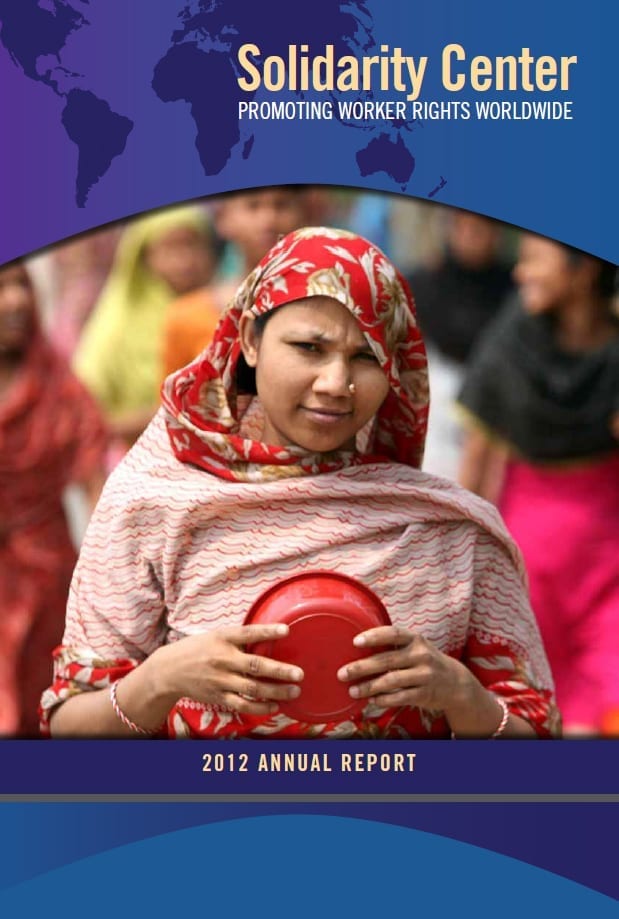
Solidarity Center 2012 Annual Report
Download here.
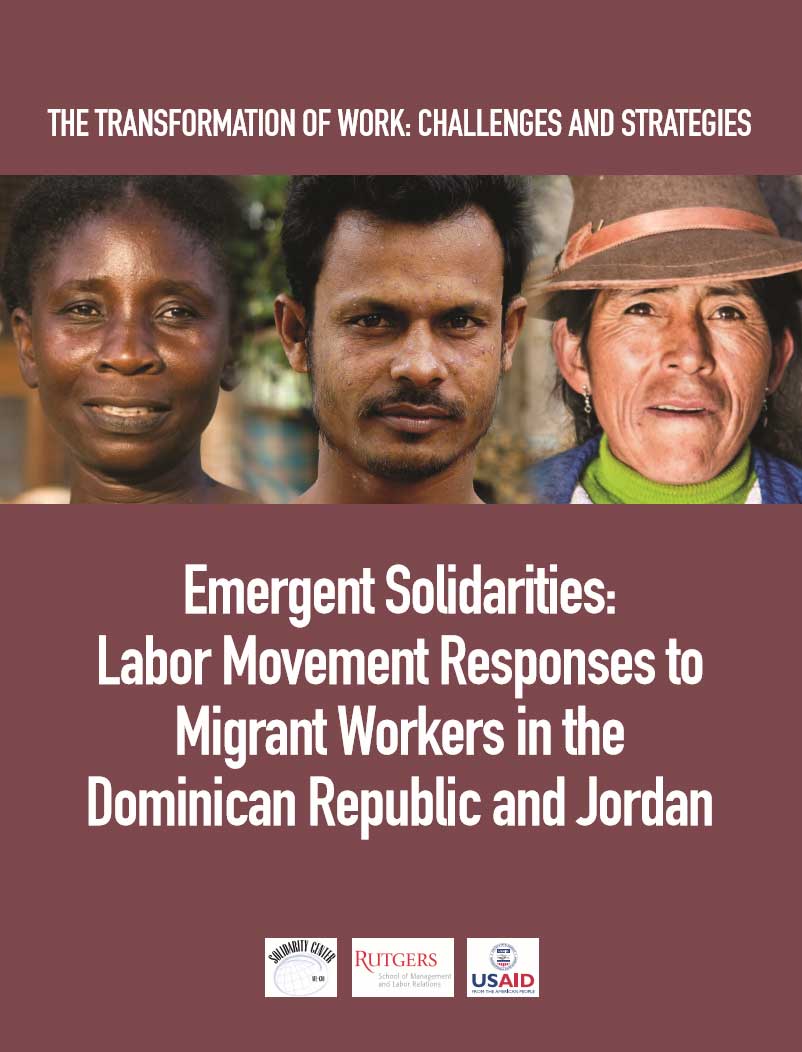
Emergent Solidarities: Labor Movement Responses to Migrant Workers in the Dominican Republic and Jordan (Rutgers, 2013)
This report explores examples of unions making significant change in their approaches to migrant worker organizing and how the Solidarity Center has played a role in shifting union thinking about migrant workers and supporting union engagement and activities. Part one...
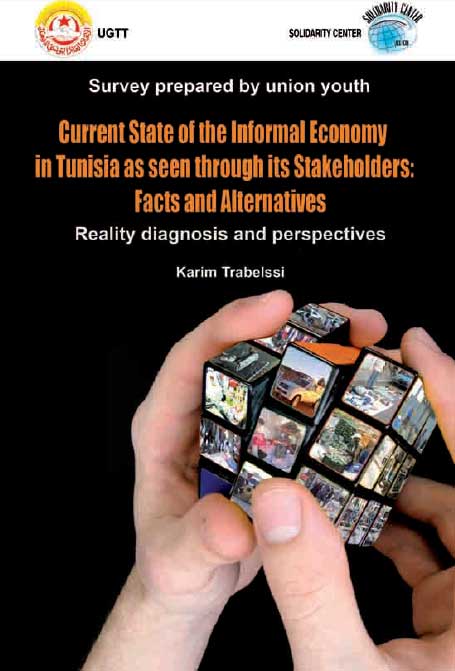
Current State of the Informal Economy in Tunisia as Seen through Its Stakeholders: Facts and Alternatives (June 2014)
A new Solidarity Center study takes a close look at the factors fueling the massive growth of Tunisia’s informal economy, and recommends actions to help shift workers in the precarious informal sector to jobs with health coverage and other social benefits. Download...
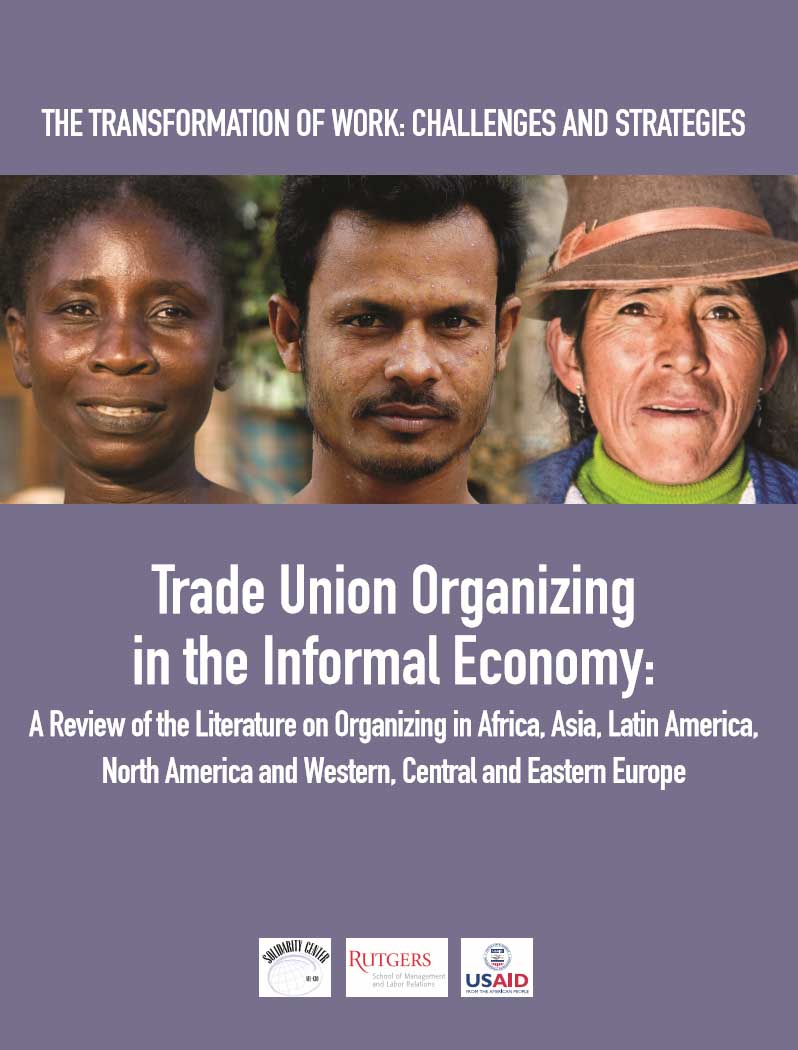
Trade Union Organizing in the Informal Economy: A Review of the Literature on Organizing in Africa, Asia, Latin America, North America and Western, Central and Eastern Europe (Rutgers, 2013)
This report reviews the literature of efforts throughout the globe by workers who labor outside the formal labor economy of their countries to form or join trade unions as well as unions’ efforts to organize and represent them. This Solidarity Center report is part of...
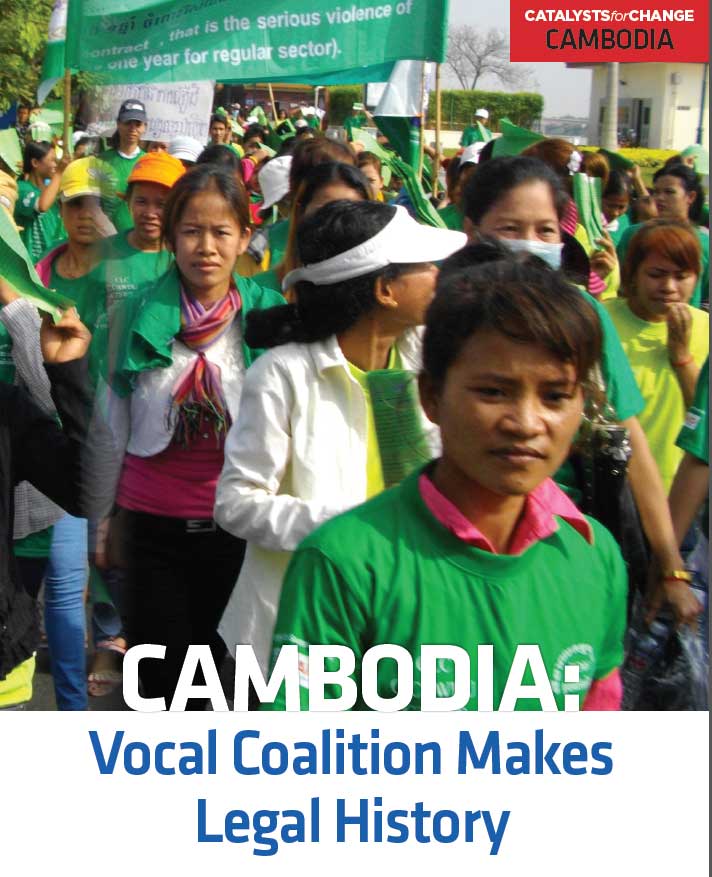
CAMBODIA: Vocal Coalition Makes Legal History (2013)
Cambodia’s nascent independent labor movement and human rights organizations worked to revise a labor law proposed in 2011 that would have significantly rolled back worker rights—and a Solidarity Center report describes how they did it. English (PDF) Arabic (PDF)...
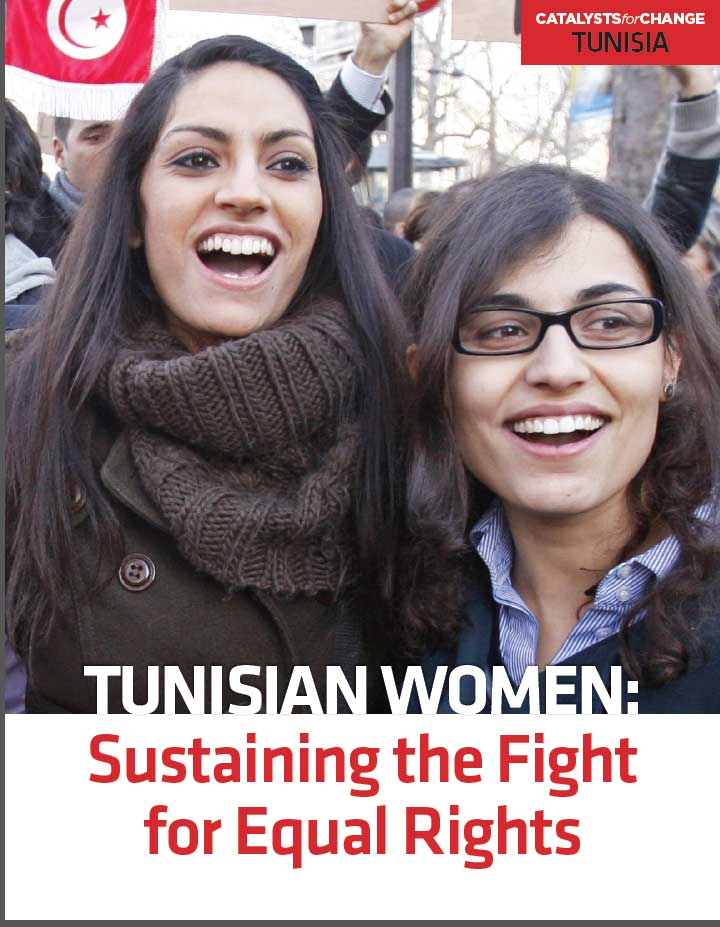
TUNISIAN WOMEN: Sustaining the Fight for Equal Rights (2013)
In 2011, Tunisian women helped spur protests and end autocratic regimes in Tunisia and throughout the Arabic-speaking world. Today, a Solidarity Center report finds Tunisian women remain in the forefront of ensuring democratic change in their country during the...

